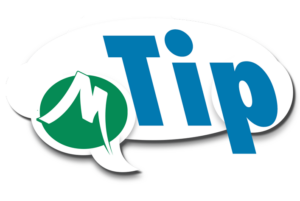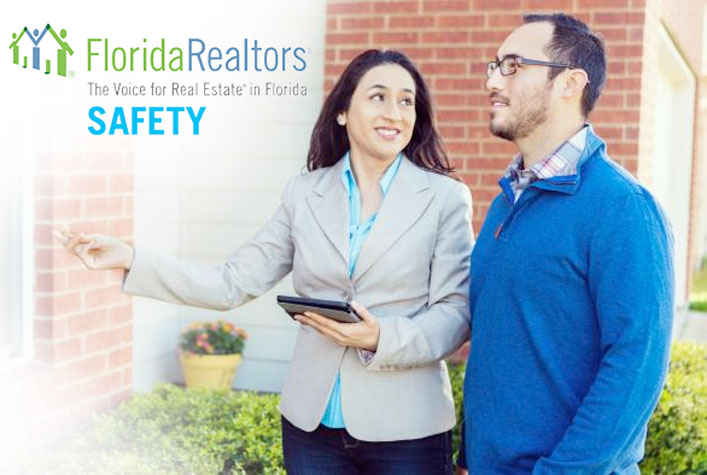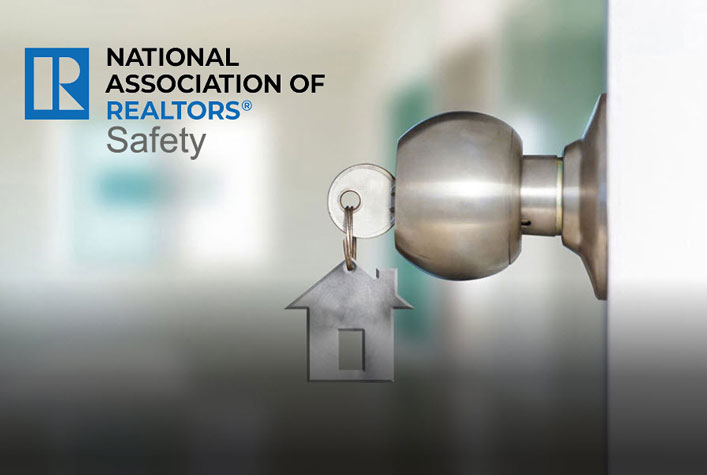REALTOR® Safety Tips

Tip: Keep personal information private. Getting to know your customers does not need to include personal information about your children or where or with whom you live.
Tip: Discourage criminals from targeting your open house by explicitly promoting that identification will be required at the front door and video surveillance will be in use.
Tip: Stay safe and healthy in winter by planning ahead. Prepare your home and vehicles. Create safety protocols for weather-related emergencies such as power outages. If you can, check on your neighbors and older adults who could be especially at risk.
Tip: Protect your mental health. Try to recognize when stress is building up and be prepared with a list of ideas for positive ways that could help you de-stress. Give yourself the time and attention you deserve.
Tip: Avoid public Wi-Fi. While free wireless networks are convenient in a pinch, they can put you at a higher risk of hackers accessing your data sent over unprotected networks.
Tip: Remember to test smoke detectors at your home and office at least once a month, and to change the batteries annually. It is recommended that smoke detectors be replaced every 10 years.
Tip: Traveling to NAR NXT or other industry conference? Research the area that you will be staying in to map out routes and make note of any areas that are regarded as unsafe for out-of-town travelers. If you go offsite from the conference, confirm with hotel staff that your destination is not in a particularly dangerous part of town.
Tip: When showing commercial property, keep in mind that thick walls and remote locations may interfere with your phone’s signal strength. Check your service on-site before the showing, to ensure that your phone will work properly.
Tip: Be careful not to overshare on social media. Avoid posting anything that may inform others of your whereabouts like where you are going, how long you will be there or if you will be alone.
Tip: When meeting a customer for the first time, do so at the office or in a public place. Always let a fellow agent or someone in your office know who, when and where you are meeting.
Tip: Never open an attachment from someone you don’t know, as computer viruses can be distributed via email. If you receive a strange or impersonal-sounding message from a familiar address, verify with that person too that it is something they intended to send.
Tip: Familiarize yourself with the neighborhoods you work in. Streets and landmarks may look different at various times of the day and night.
Tip: While working late or alone, create the appearance that you are not the only person there. Keep extra lights on in the office and turn on some music, a podcast, or the TV. Keep in contact to make sure someone knows where you are and when you will be home.
Tip: When entering a basement, always have an exit strategy prepared. Let the client go downstairs first or let them go alone and stay one the main floor.
Tip: Data security and privacy laws vary from state to state. It is important to understand how your local and state laws impact your business regarding data security.
Tip: Only show vacant properties during the daytime in case there is no electricity working on-site. With better visibility, you can catch safety hazards that may be present, like a loose floorboard or other defects the house may have.
Tip: REALTORS® spend a lot of time in their cars driving to and from the office or appointments. Always take the safest and most well-lit route – day or night.
Tip: Look out for each other and alert your colleagues when you are contacted by or dealing with a suspicious customer to spread awareness for potential safety issues.
Tip: Sturdy doors are key to home safety. Make sure that all your home’s doors to the outside are metal or solid, hardwood and have good, sturdy locks.
Tip: A vital component of commercial building security is adequate lighting. To avoid accidents and suspicious activity, light up darker areas in your building’s interior and exterior as much as possible. You can install motion detection lighting in outdoor spaces to add another level of safety.
Tip: If you ever feel uncomfortable meeting a customer in person, use the “Buddy System.” Have code words prepared to notify each other if you feel threatened and need to make an exit.
Tip: REALTORS® danger zones where you could be most vulnerable: your car, in the office, showing a property and an open house. Make a safety plan for each one and follow it every day.
Tip: Be informed about REALTOR® Safety. Along with the resources available from NAR, review the tools and resources available from your State and Local REALTOR® Associations.
Tip: Answering texts while driving can be very tempting, but here’s a fact. If you text and drive, you’re 23 times more likely to have an accident. Put down the phone. Send texts after you’ve parked the car.
Tip: Have a plan in place if an emergency should occur in the office. Talk to your local fire department about office appropriate fire and evacuation drills and ensure that everyone in the office knows the protocol.
Tip: Keep a log of your credit cards somewhere safe in case they are ever lost or stolen. That way, you will be able to report them quickly and effectively. Don’t bring them everywhere you go, only carry the cards or cash needed for that day.
Tip: Choose flight over fight. While every real estate agent should take a basic self-defense course, escaping from immediate danger and calling for help should be the primary goal in any threatening situation.
Tip: When working alone in the office, ensure all outside doors and windows are locked to prevent an intruder from sneaking in.
Tip: Don’t share your home address with customers or on any advertisements. Giving out too much personal information can make you a target. Instead, use your office address for business purposes.
Tip: Are your passwords strong enough to deter hackers online? Create smart passwords by using more than six characters and incorporating capital letters, numbers and symbols.
Realtor Safety Blog
5 Common Real Estate Safety Myths
4 ‘Danger Zones’ in Your Daily Work Routine
Are You Safer Working on a Team?
5 Signs of a Home Improvement Scam
Be Alert: Health Insurance Scam Targeting NAR Members
Media Misunderstands Culture of Safety in Real Estate
Open Houses Could Draw Out More Thieves
How Safe Is Your Computer? Check Out This Safety Checklist!
7 Dangerous Practices You Think Are Safe
REALTOR® Safety Pledge
As a REALTOR®, my first priority is the well-being and safety of myself, my REALTOR® colleagues, the clients and customers we serve, and the business partners who foster our profession.
Therefore, I pledge to always conduct business and prospecting activities in a reasonably safe manner, which includes following the recommendations from the National Association of REALTORS® and adhering to the Safe Listings Form to the best of my ability.
I am committed to receive education and in turn to advise consumers and colleagues on best safety practices.
REALTORS® are committed to safety, and I take this pledge because I care about the wellbeing of myself, my clients and customers, my colleagues, and my profession.
Tools, Tips and Resources
REALTOR® Safety Network – click here
Top 5 Safety Action Items for REALTORS® – click here
Follow @nardotrealtor on Social Media for Year-Round Safety – click here
Realtor Safety Toolkit for Brokerages – click here
REALTORS® Safety Videos from NAR – click here
Watch Video: The True Nature of Crimes Against REALTORS® – click here
Drive with NAR Podcast – Episode 9 (REALTOR® Safety) – click here
Resources for Personal Protection – click here
NAR Safety Articles – click here
Prioritizing Your Mental Wellness – click here
Get the Right Weather App for YOU – click here
Take the Quiz: Test Your Cybersecurity Know-How – click here
Identity Theft Protection Plans – Exclusive savings for REALTOR® Members – click here
BROKERS/MANAGERS: Keep Track of YOUR Colleagues – click here
Forewarn
Additional Safety Solutions for Agents on-the-go
Understanding REALTOR® Safety Risks – Part 1
0018 REALTOR® Safety with John Mayfield – Full Broker Training
Cybersecurity
Artificial Intelligence (AI) for Real Estate Resource Hub
Personal Safety Tips for the Real Estate Professional
Avoiding REALTOR® Danger Zones – Discover why safety matters and how implementing safety best practices is not only good for you, but ultimately good for your business. WATCH VIDEO!
NAR Realtor Safety

- 56 Tips to Help Realtors Stay Safe on the job
- 7 Must-Follow Safety Tips for REALTORS
- The Realtors Guide to Cybersecurity That Works
- One of the Best Realtor Safety Tools? ‘Trust Your Gut’


